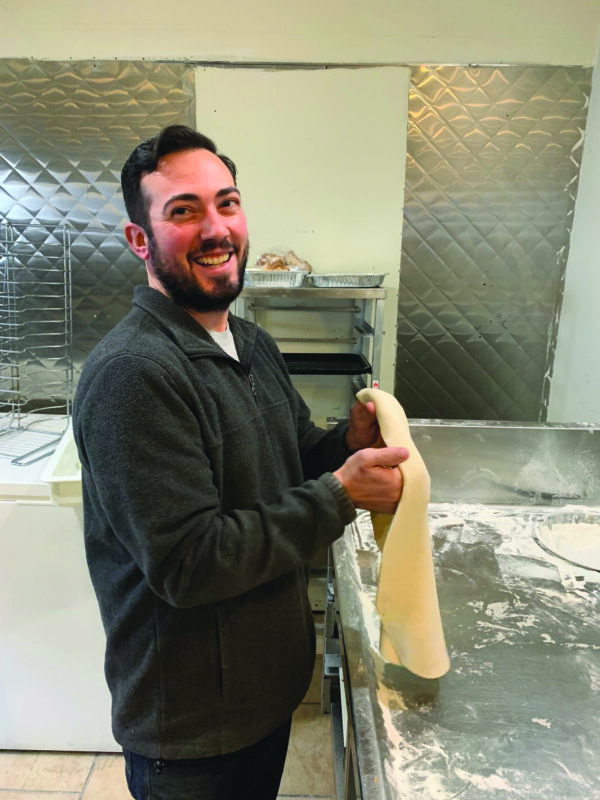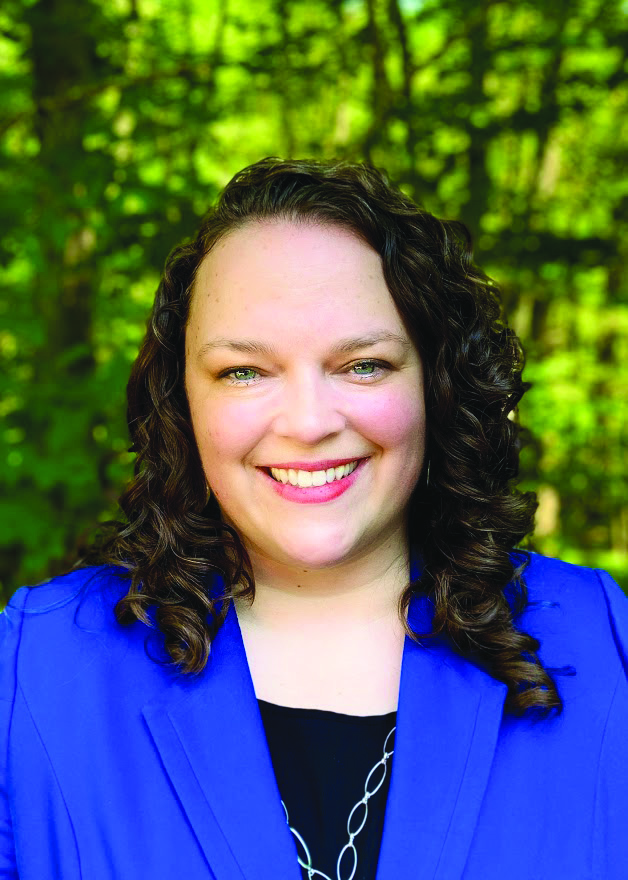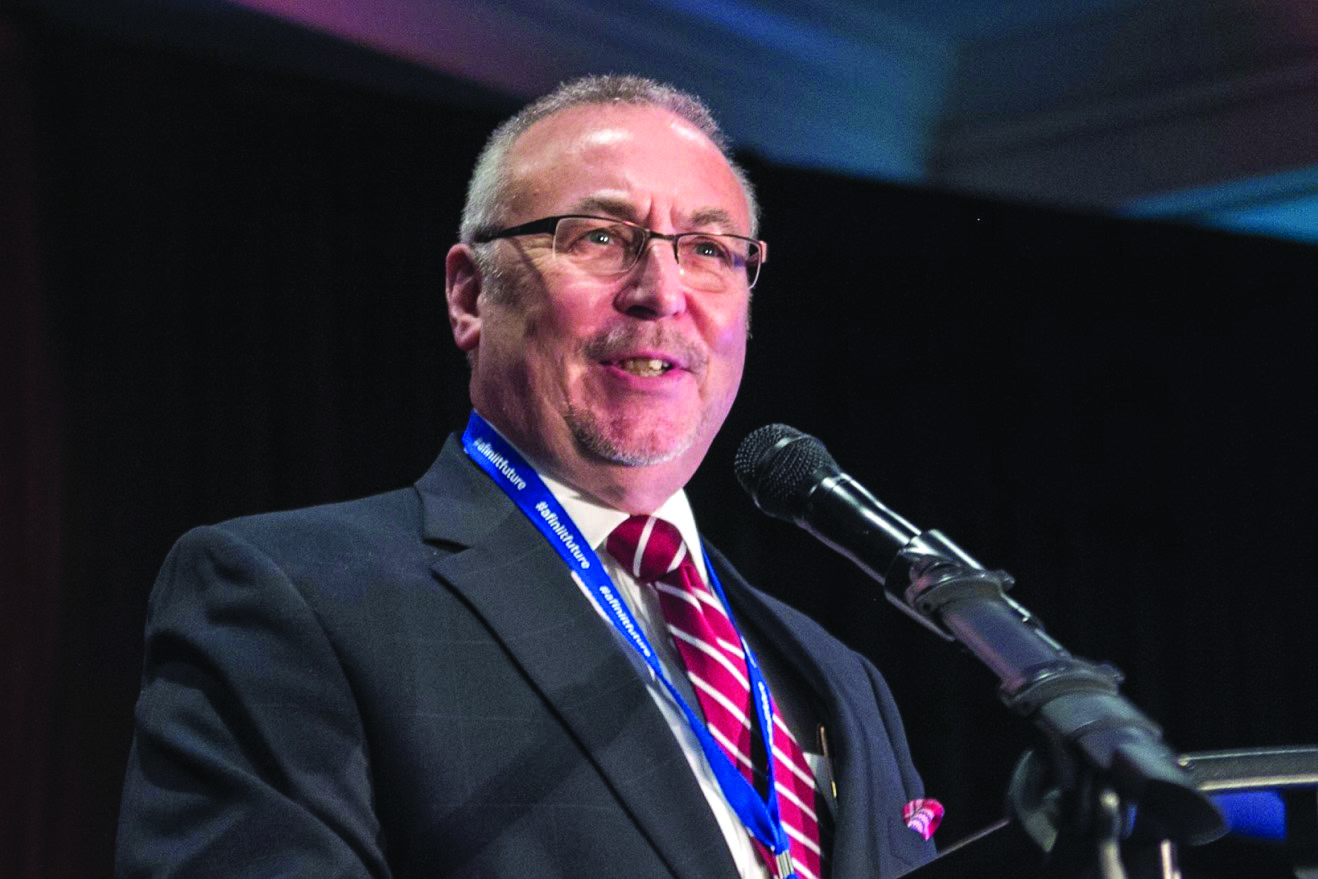Where we’re headed with Covid-19
Beth Daly, chief of New Hampshire’s Bureau of Infectious Disease Control and director of Public Health Preparedness at the New Hampshire Department of Health and Human Services, provided an overview of Covid-19 in New Hampshire, from when the pandemic first emerged to what we might see in the coming months. She also answered questions about the Covid-19 vaccine, a new strain of the virus, the flu and more.
Case trends
What did you observe about Covid cases during the summer?
We had very low case counts overall in the summer. … Many states experienced a second wave in cases in the middle of the summer, but we did not; ours remained low. That’s probably attributable to a number of different factors: we closed a number of different sectors in the spring, and by the end of June we were seeing as few as 14 or 15 cases per day. Then, we had a phased reopening and were able to reopen in a safe manner. I think implementing those measures helped to control the outbreak at that time and [prevent] a resurgence of cases over the summer. But, of course, heading into the fall, we did see a resurgence like many other states, and [cases] have now far exceeded what we even experienced in the spring.
What’s currently happening with Covid cases in New Hampshire?
On average, we’re seeing between 800 and 900 cases per day, which, of course, is very, very high, especially in comparison to what we had thought was our peak back last spring. … The increase started at the end of October and has increased on a daily basis all the way through until the middle of December, but over the last week the increase appears to be slowing down and possibly moving toward a plateau.
Were you expecting there to be an increase in cases during the holiday season?
We expected there to be some increase after the holidays because of people getting together, of course, but we can’t specifically attribute any amount of transmission to Thanksgiving, for example, since the rapid increase in cases started at the end of October. … We know through contact tracing that there was some transmission that occurred from Thanksgiving, but by and large, it’s been community transmission in workplaces and community settings. … The increase is probably more of a reflection of people being indoors [due to the weather] and coming into closer contact with each other inside, where there’s not as much ventilation as being outside.
What do you predict will happen with Covid in the early months of 2021?
We can’t make any predictions about what will or won’t happen with Covid-19 … but we’re hopeful that, with the vaccine, we’ll start to see some declines in cases. Ultimately, it’s going to take a large proportion of the population to get vaccinated in order to really keep Covid-19 at bay, but every little bit of immunity being acquired in our communities, either through vaccinations or through infection, does help us prevent future cases of Covid-19.
Covid and kids
What trends have you seen with Covid-19 cases in people under age 18?
We have seen a number [of cases among] children, and that number increased in the fall. However, we have not had a significant number of outbreaks or large clusters of outbreaks in school settings. We think the measures that schools put in place to prevent the spread of Covid-19 really helped to prevent transmission in a school setting. … We see more transmissions occurring outside of school, like from sports teams … sleepovers and birthday parties … and close contact with someone in their household who has Covid-19.
What protocols put in place by schools were the most effective for reducing transmission?
Their protocols and procedures varied widely, but a lot of schools set up staggered schedules for students so that they could reduce the total number of people in the school setting at one time. That was helpful for carrying out social distancing by making sure the desks were at least three feet apart or, ideally, six feet apart. … Many schools also implemented mask requirements for students and staff.
New Hampshire’s response
How prepared was New Hampshire to handle a pandemic when Covid first hit?
We had been preparing for a pandemic for two decades, since the 9/11 funding that came through that gave all states funding for public health and health care preparedness. From that, a lot of relationships were developed and a lot of plans were put in place that suited us very well in responding to the pandemic. We knew what needed to be done and had already worked toward having the capabilities that we knew would be needed.
What has New Hampshire done right in its response to the pandemic?
The partnerships that we had going into the pandemic that we then built stronger — our health care associations, medical associations and hospital associations, along with the Emergency Management Agency here at the state and their partners in the local municipalities — have been one of our greatest assets. They have been really critical in helping us make sure that, together, we are serving the needs of the frontline health care staff in all kinds of different facilities, and that the public is getting the testing and care they need. The flexibility that the governor has had in terms of declaring a state of emergency, bringing funds into the state and being able to execute contracts quickly has also been incredibly important and helpful.
Is there anything it should have done differently?
I think overall New Hampshire has mounted a strong response to Covid-19. The thing that slowed down our capacity [to respond] was … testing. I think a lot of what has transpired with the pandemic reflects on the existing health care and public health infrastructure in our country. Having stable investments in public health laboratory testing, case investigation [and] contact tracing is important. A lot of these systems have been here for decades but were clearly not funded enough to support us during a pandemic. Now, we’ve ramped those systems up, but it took a while to do.
What are your top priorities right now?
Our focus and attention is on the vaccine right now, and on getting that out to people as quickly as possible. … We also stand ready to be able to open up alternative care sites and work with our health care partners to make sure that, if there is a resurgence that exceeds our health care system, people are able to access care. Hopefully, that won’t be needed, and we’ll keep our case counts where they’re at or, ideally, even lower.
Are we more prepared now, if another pandemic were to come along in the future?
We’re obviously in a much better place to respond to a future pandemic because we’ve done it now; we’ve figured things out, and we’ve learned from it, and we’ll be able to take our experience with us into the future.
The vaccine
What’s happening with the vaccine?
Right now, we’re getting a small amount of vaccines each week, and we’re rolling out Phase 1A, which includes health care workers, long-term care facility residents and staff and first responders. There are about 100,000 to 110,000 people in that group. Assuming we get the vaccines as we’re expecting from the CDC, we should be able to have that group vaccinated by the middle to end of January. Then, in February, we would be able to move forward with the next phase, Phase 1B. We have not shared yet who is going to be included in that group, but we plan to share that information with the public in the next week or two.
When will it be available to the general public?
That depends on how large the Phase 1B group is. For example, if that group has 200,000 people and [New Hampshire continues] to get the same amount of vaccines each week, that could take us into February and March, and we’d be looking at opening up vaccines more broadly to the general public in April. … It also depends on just how much vaccine we’re going to get. We expect that we’re going to get more and more over time as more formulations become available, but there are still a lot of unknowns that make it difficult to predict the trajectory of when we’ll be done [vaccinating] the 1.3 million people in New Hampshire.
How is it being distributed?
There are two formulations available right now: Pfizer and Moderna. Both require two doses. For Pfizer, you would get the doses 21 days apart, and for Moderna, you would get them 28 days apart. … In order to vaccinate everyone, the plan is to leverage everyone who’s able to provide vaccines in our state in all of our different settings. That will include a combination of hospitals, health care providers, pharmacies and state-run sites that we’re opening up to assist with the vaccinations and make sure that we can reach everyone.
A new strain
There’s been talk of a new strain of the virus. What’s going on with that?
We’re following [updates] coming out of the United Kingdom, where they are investigating a potential new strain of the Covid-19 virus that is emerging there. This is something that can happen with viruses. The virus can recombine and have different proteins on the surface of the cell that cause it to behave differently. You can detect these changes through molecular testing of the viruses themselves. In this case, [the U.K. is] reporting that [the new strain] is more transmissible [but] does not appear to be more severe.
How concerned are you about the new strain?
It’s certainly something we’re keeping our eye on. We don’t know what will happen with that strain and if it will continue to circulate or not, so all we can do is monitor it. Fortunately, the same prevention measures for the [original] Covid-19 virus — social distancing and mask use — work for the other strain as well.
The flu
Has influenza been a problem this year?
We’ve seen very little flu activity in our state. In fact, we haven’t confirmed any influenza in our public health laboratory. We’ve heard that there have been some detections of it by rapid tests in the community … so it’s out there, but it could be out there in a very sporadic way. It’s certainly not widespread or being detected frequently right now in our population. … The flu and Covid-19 are transmitted in similar ways, so we think a lot of the measures that we’re taking to prevent Covid-19 spread — social distancing, washing hands, wearing masks — could also be helping to protect us from influenza and other respiratory illness and keep those cases down.
Is it still important to get a flu shot?
Absolutely. We typically recommend that everyone six months and older get the vaccine to protect themselves from influenza, which is also a serious respiratory virus that we don’t want people to get. We have people die from it every year in our state. We also don’t want people getting influenza and getting hospitalized, because that’s going to increase the pressures that are already put on our health care system due to Covid-19. Keeping people out of the emergency room and doctors’ offices and from being hospitalized will help our whole health care system be able to better respond to Covid-19.
What now?
Is there anything else the New Hampshire public should know as we head into the new year?
Please, keep social distancing, wear masks, exercise good hygiene, stay home if you’re not feeling well and avoid travel. We know people are tired of it, but this is not the time to give up on those precautions. We want to stay strong as we roll out the vaccine. We can’t relax yet.
Featured photo: Beth Daly. Courtesy photo.





